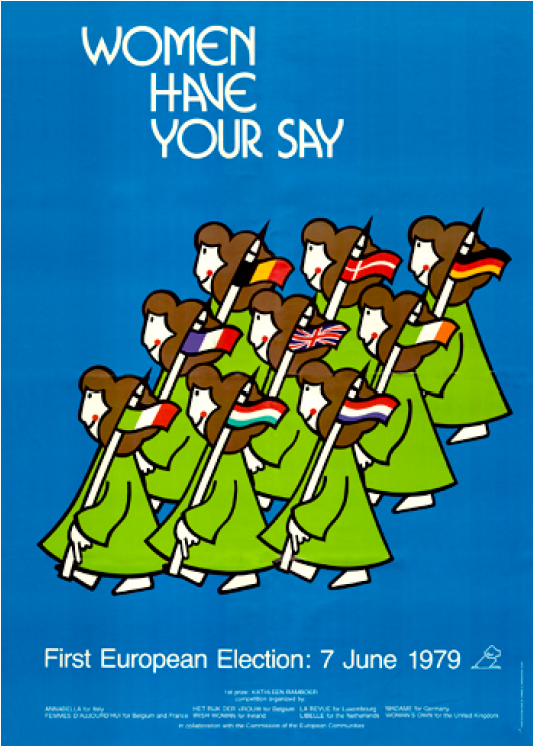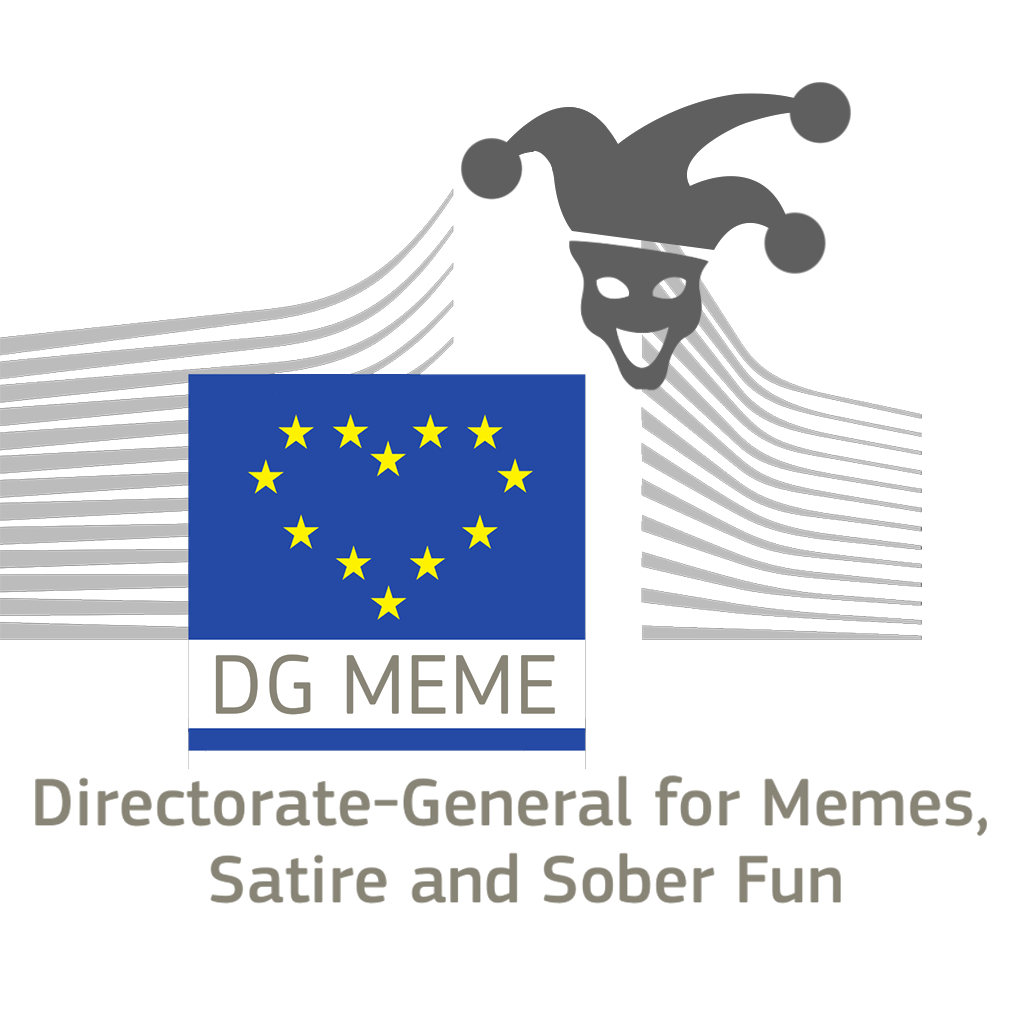Turning points in history often go unnoticed; but the European Community did not want this to happen to the first direct EU elections ever held, forty-four years ago.
The elections were set for 1979 (from 7 to 10 June) and the EU institutions had to set up their biggest communication campaign (to date). As many things in the EU, the success was debatable, but it was a first step. The first step to keep moving EU communication forward. Or at least not backward. Standing still is also fine, actually.
On the Communication side:
European Commission Audiovisual Library
- The European Commission and the European Parliament teamed up to organize a massive information campaign across member statesMember State (abbr. MS) is how eurocrats call a country which is part of the European Union. Clear writing guidelines recommend using EU country or EU countries instead, but some habits are hard to die..... They still do when elections come.
- The campaigns were tailored to each country. With specific messages for specific audiences. The objective was to explain the elections in a “non-partisan” way and using “all the media available” (a sentence that still resonates in each comm strategic meeting)
- Financial support was offered to the main broadcasters of the 9. And they collaborated in an unprecedent way.
- Europeans could participate in a poster competition. Kathleen Ramboer won with her design “Women have your say”.
- “Your voice” and “future” were the most repeated in slogans. Some things never change.

Copyright: European Parliament
On the elections side:
In the 9 countries (at the time), 180 million Europeans were called to elect 410 representatives. The old Parliament (in existence since 1958 with politicians appointed by national governments) was about to be replaced by a ‘more democratic’ one, as required by the Treaty of Rome (1957).
The Treaty was clear about the need for ‘direct universal suffrage’, but the member statesMember State (abbr. MS) is how eurocrats call a country which is part of the European Union. Clear writing guidelines recommend using EU country or EU countries instead, but some habits are hard to die.... were reluctant, so they kept appointing MEPsA Member of the European Parliament (abbr. MEP) is the living proof that eurocrats are elected by the people, as in every well-functioning democracy. They change every five years, which is more or less the time they need to get a basic idea of how the European Union works. They... for more than twenty years. The CouncilThe Council of the European Union and The European Council have two things in common: the name and the fact that they represent the position of their member state's executive. To avoid confusion, we thought of grouping the two definitions in the same page: understanding by the context to which... eventually agreed to have elections – after some proposals and intimidations indications by the Parliament and the Commission, including the threat to take the CouncilThe Council of the European Union and The European Council have two things in common: the name and the fact that they represent the position of their member state's executive. To avoid confusion, we thought of grouping the two definitions in the same page: understanding by the context to which... in front of the EU Court of Justice.
Supporters thought it will bring more unity. Some French Gaullists, British Laborites and Danish anti-EC groups, feared it could become a threat to their sovereignty. Hope and fears that we still see today.
Even if no one was really sure about the exact role of the new Parliament, major political parties formed alliances across national borders – the embryo of political groups.
Some of Europe’s most distinguished political figures in history participated: Willy Brandt campaigned not only at home but in France, The Netherlands, LuxembourgLuxembourg (abbr. LUX) is one of the funding members of the European Union, with a curious inverse relationship between its size and the cost of housing. Its considerable community of eurocrats is haunted by the constant feeling of being ignored by their colleagues in Brussels. Or the rest of the... and Italy; in France, Jacques Chirac turned the election into a domestic contest against Valery Giscard d’Estaing; Simone Veil was going up in the polls ahead of the elections… Mitterrand, Enrico Berlinguer, Emma Bonino, Mario Zagari, Basil de Ferranti they all participated.
European Commission Audiovisual Library
The results
The turnout was around 63%, the highest ever in the history of the EU elections.
- Socialists parties won the most seats: 113.
- Christian Democrat parties united within the pan-European European People’s Party secured 107 seats.
- Conservative European Democrats with 64 came third. The Communists won 44 and the Liberal Democrats 40.
The Liberal Democrats candidate, Simone Veil (survivor of Auschwitz and defender of women’s rights), will become president of the first directly elected European Parliament.
